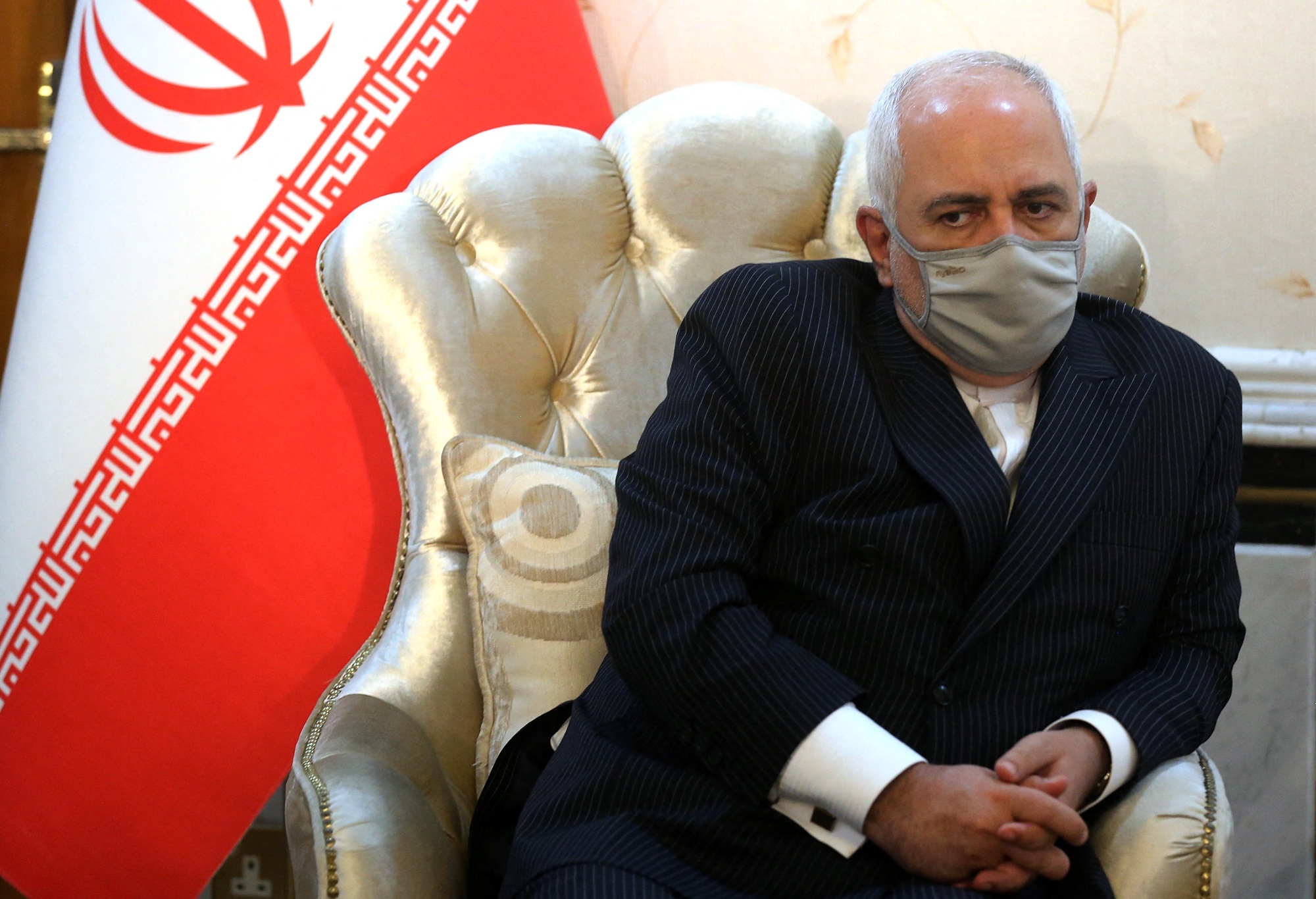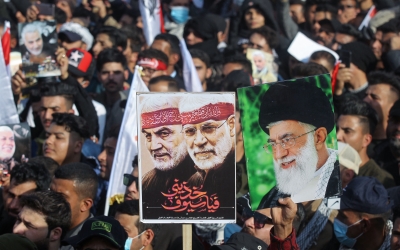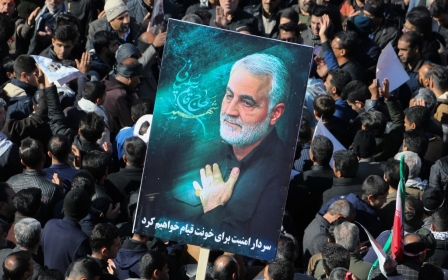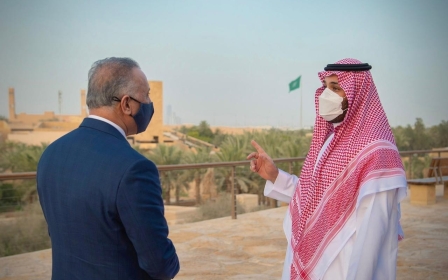Iran presidency orders probe into leaked tape of foreign minister

Iran's president has ordered a probe into the "conspiracy" of leaked audio in which Foreign Minister Mohammad Javad Zarif is heard saying the military was too influential in diplomacy, a government spokesman announced on Tuesday.
President Hassan Rouhani ordered the investigation to identify who leaked the "stolen" three-hour-long recording of Zarif, a top diplomat and member of his moderate government, the spokesman said.
New MEE newsletter: Jerusalem Dispatch
Sign up to get the latest insights and analysis on Israel-Palestine, alongside Turkey Unpacked and other MEE newsletters
"We believe this theft of documents is a conspiracy against the government, the system, the integrity of effective domestic institutions, and also against our national interests," government spokesman Ali Rabiei told reporters.
"The president has ordered the intelligence ministry to identify the agents of this conspiracy," he added.
The file was "stolen for clear reasons", he said, without elaborating further.
The leak and probe come ahead of presidential elections on 18 June, which will see the moderate Rouhani step down after two terms in office and after conservatives fared well in parliamentary elections last year.
Criticism of Soleimani
Foreign ministry spokesman Saeed Khatibzadeh did not deny the authenticity of the recording, but said on Monday that it was cut from a seven-hour interview that included "personal opinions".
Zarif's conversation with economist Saeed Leylaz was clearly not meant for publication, something the foreign minister repeatedly mentions on the recording.
Zarif did not comment on the controversy, but published on Tuesday a brief audio message on Instagram, saying "I believe you should not work for history... I say, don't worry about history so much, but worry about God and the people".
He did not specify when he recorded this message.
The leaked remarks sparked harsh criticism from conservative media and politicians, with the mention of Iran's slain general Qassem Soleimani hitting a nerve.
Soleimani, considered one of the prominent architects of Iranian regional policy, was killed early last year in an American drone strike in Baghdad, ordered by then-US president Donald Trump.
At one point, Zarif is heard complaining that Soleimani worked to undermine his negotiation of the 2015 nuclear deal and that his policies in Syria were damaging to Iran's long-term interests.
The leak of the recording comes as Iran is looking to negotiate rejoining the 2015 nuclear deal, which effectively collapsed during Trump’s administration, with indirect talks currently underway in Vienna between the two sides.
Trump's successor, Joe Biden, has expressed a willingness to return to the deal, as has Zarif. However, conservatives in Iran have long taken a sceptical view of the deal and have resisted any attempt to rejoin it.
Parties to the Iran nuclear agreement are expected to resume their negotiations on Tuesday in Vienna to revive the tattered accord.
Iranian media reacts
The tape has dominated the discussion in the Islamic republic since its publication by media outlets outside Iran on Sunday.
The ultra-conservative Vatan-e Emrooz newspaper published a large black-and-white picture of Zarif on its front page, with the headline "Despicable" written in red.
"Diplomacy must follow the path of increasing the system's power," it said, criticising Zarif's comments regarding the military.
It added that his stance confirmed that "America's constant demand about negotiating Iran's regional power and missile capabilities" stemmed from Iranian diplomats' "wishes and cooperation with this demand".
Javan daily said Soleimani was "physically assassinated (upon) the order of the most wretched creature of the world... America's president" - but that Zarif had "assassinated (Soleimani's) character".
Ultra-conservative Kayhan daily inferred that the audio may have been leaked by Rouhani's government to force "Zarif into (political) suicide" in a bid to save itself from the judgement of "public opinion".
It said Zarif, while being "sacrificed like a simple pawn", had broken rules of "confidentiality" and provided Iran's enemies with "intelligence and ammunition" for their psychological war against the country.
For their part, the reformist papers sought to question which faction stood to gain from the leak.
Shargh daily wrote on its front page "Who leaked it, who benefited?"
Middle East Eye delivers independent and unrivalled coverage and analysis of the Middle East, North Africa and beyond. To learn more about republishing this content and the associated fees, please fill out this form. More about MEE can be found here.




